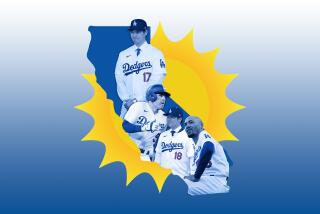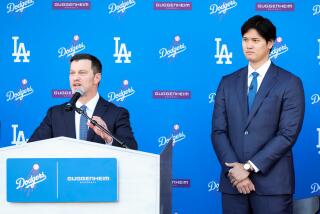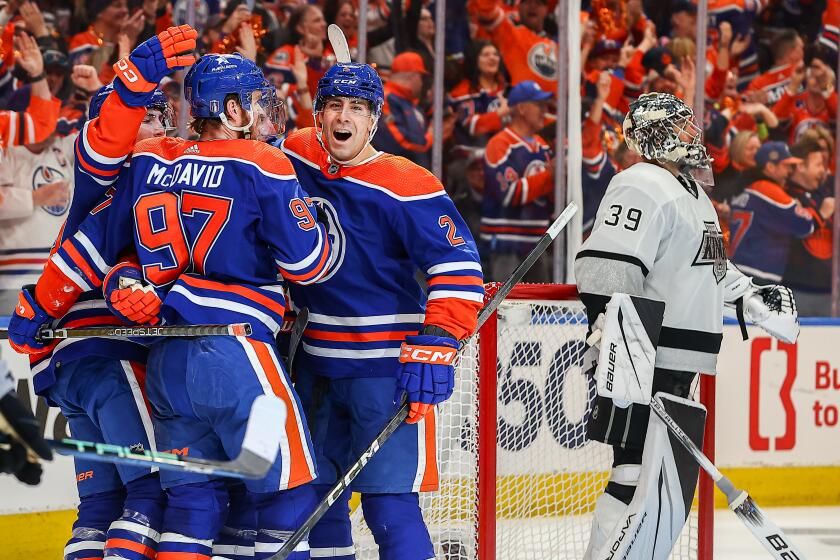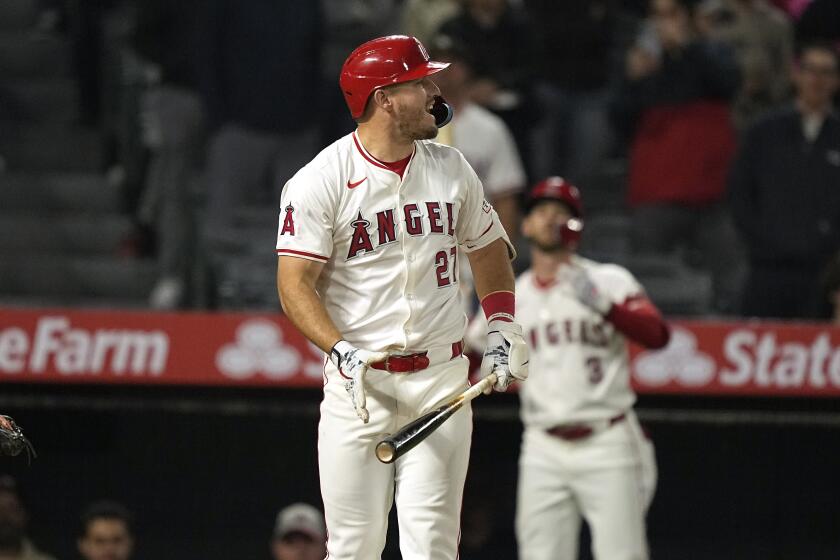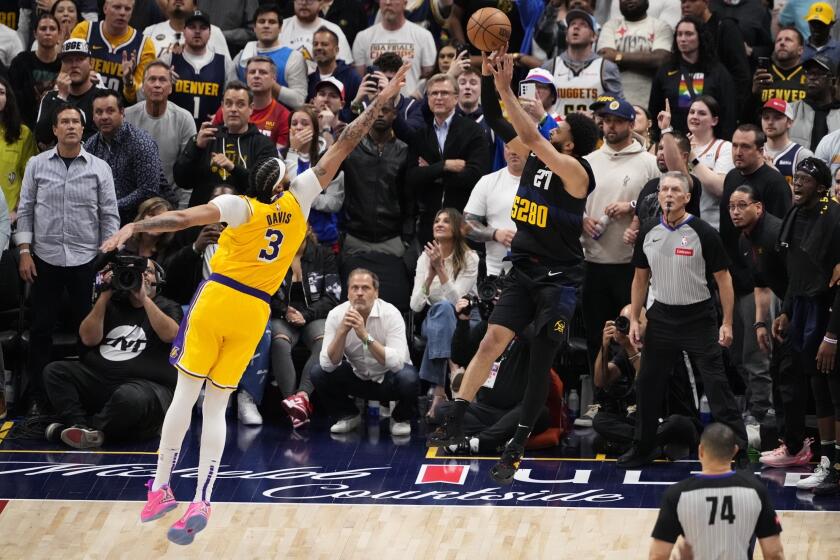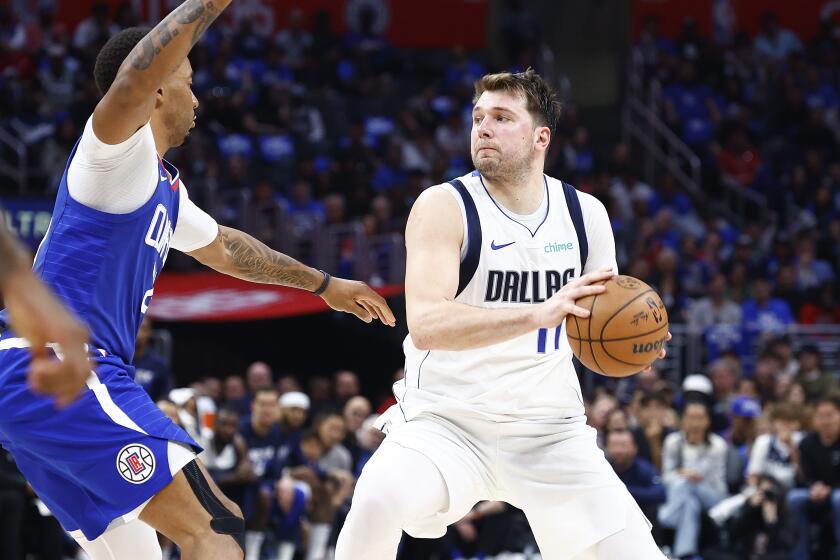Column: Paul Konerko’s baseball career is a tale of excellence
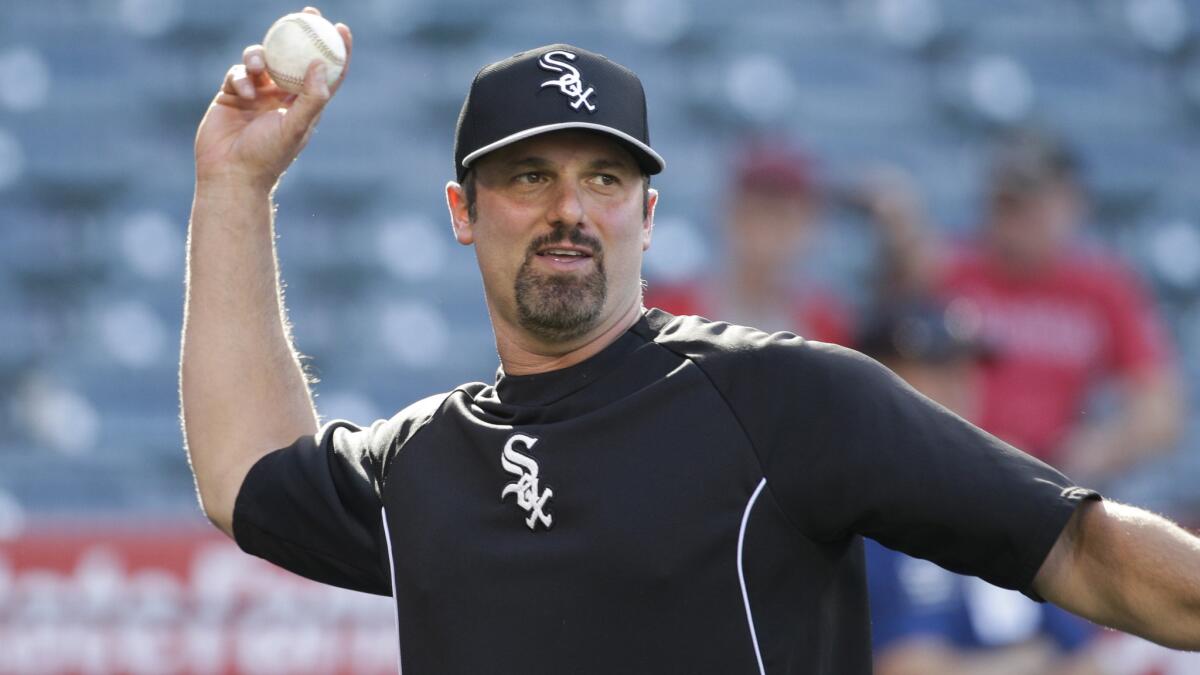
It is a slur, a slam, a label that carries the air of disparagement. When the Cooperstown debates flare anew each winter, candidates who do not measure up in the eye of the beholder are dismissed with these words: “It is the Hall of Fame, not the Hall of Very Good.”
We come today to celebrate the Hall of Very Good.
For every 100 players, one makes the Hall of Fame. But no team wins with one player alone. It is the best of the rest, the stars who are not superstars, that we take this opportunity to salute.
We do it today as Paul Konerko plays his final game in Southern California. This is the year of the Derek Jeter farewell tour, and the Angels presented Jeter with a custom surfboard before his final game in Anaheim. The Angels do not plan to present Konerko with anything.
Konerko is to the Chicago White Sox what Tim Salmon was to the Angels, the sturdy loyalist who stuck around for a surprise World Series championship, to the delight of long-suffering fans.
“My only goal, really, when I got to the big leagues was to play for one team for 10 years,” Konerko said. “I figured, if I did that, all the other stuff would just come along with it. And it has.”
Konerko, 38, has hit 437 home runs. If he hits six more before he calls it a career, he could finish in the top 40 on the all-time list.
He hit his first home run with the Dodgers, in 1998, amid turmoil that rivaled anything Frank McCourt had to offer. The new Fox ownership traded Mike Piazza in May, over the head of general manager Fred Claire, then fired Claire and manager Bill Russell in June.
Tom Lasorda, installed as interim general manager, played for the present, not the future. Konerko was the Dodgers’ top prospect, but he was a first baseman, with Eric Karros ahead of him. On July 4, with the Dodgers 121/2 games out of first place in the National League West and eight games out for the wild card, Lasorda traded Konerko to the Cincinnati Reds for closer Jeff Shaw.
“I was surprised not because I got traded, but because of the timing of the trade,” Konerko said. “I don’t think it really mattered what they got at that point. It didn’t seem like they were going to win.”
They didn’t.
“We traded him because of a single reason: Karros was at first base,” Lasorda said. “We got a closer. I’ve said this time and time again: pennants, playoff games and the World Series are won or lost in the bullpen. You’re not going to win if you don’t have a good closer.”
The stink that surrounded the Piazza trade made it imperative for the Dodgers to retain Karros, a fan favorite who wanted to stay. In retrospect, there is no question the Dodgers should have chosen Konerko over Karros.
Shaw pitched for the Dodgers through 2001, but they never made the playoffs during his tenure. Karros’ slugging percentage dropped nearly 100 points from 1999 to 2000, which was the last year he hit more than 15 home runs.
Karros had three seasons with an .800 OPS, the last in 1999. Konerko had 12, the first in 1999, when the White Sox acquired him from Cincinnati for outfielder Mike Cameron and installed him at first base, for the next decade and a half, and for six All-Star games.
Konerko played alongside Frank Thomas, who will enter the Hall of Fame in July.
“When Thomas stepped on the field, he was a game changer,” Salmon said. “Paul was the consistent cog in the wheel that produced and let everybody else do their jobs. It would be nice to have those guys acknowleged.”
Salmon heard all about how he would have to choose between staying with his team and playing in the World Series. So did Konerko.
“I guarantee we probably heard it worse, when you’re talking about 80-something years of a drought,” Konerko said.
The Angels won in 2002, for the first time since they were born in 1960. The White Sox won in 2005, for the first time since 1917.
“When you’re on the field for the last out of a World Series, on the winning side, there’s nothing really even close,” Konerko said. “I don’t think I’ve had that type of a feeling before, or since.”
After the 2005 World Series, Konerko was a free agent. The Angels came hard after him, led by Manager Mike Scioscia, who coached him in the majors and minors with the Dodgers. Scioscia said the Angels got “very close” to signing Konerko, but loyalty to the White Sox won out.
The White Sox repaid that loyalty this season, signing Konerko for a farewell season much as the Angels did with Salmon in 2006. To enjoy the rare privilege of calling his retirement shot, each player had to accept a bench role.
Konerko said he is proudest of staying with one team and playing every day. He will leave the numerical assessment to the numbers people.
“The amount of the numbers that are out there today is nauseating,” he said. “It’s just ridiculous. It’s too many people. Nowadays, you have a laptop and a blog, and you’re an expert. I hate to sound like an old guy, but I feel like the technology has gone faster than people could be smart about it, when it comes to our game.
“People think they can quantify everything.”
On the Baseball Reference website, three of the top 10 hitters ranked as comparable to Konerko are Orlando Cepeda, Willie Stargell and Jim Rice, Hall of Fame members all, not that Konerko expects to come close to Cooperstown.
“With the way my career has gone, that’s enough for me,” he said. “Even to have somebody ask me a question about that is pretty cool.”
For Konerko, it will be a place in the Hall of Very Good, and a spot in the hearts of his team’s fans. Jeter might get all the farewell gifts, but he and Konerko each get the love at home.
“They’re both iconic in their organizations,” Scioscia said. “When you go to the South Side and walk in the stadium and say Paulie, everybody knows who you are talking about.”
More to Read
Get our high school sports newsletter
Prep Rally is devoted to the SoCal high school sports experience, bringing you scores, stories and a behind-the-scenes look at what makes prep sports so popular.
You may occasionally receive promotional content from the Los Angeles Times.


